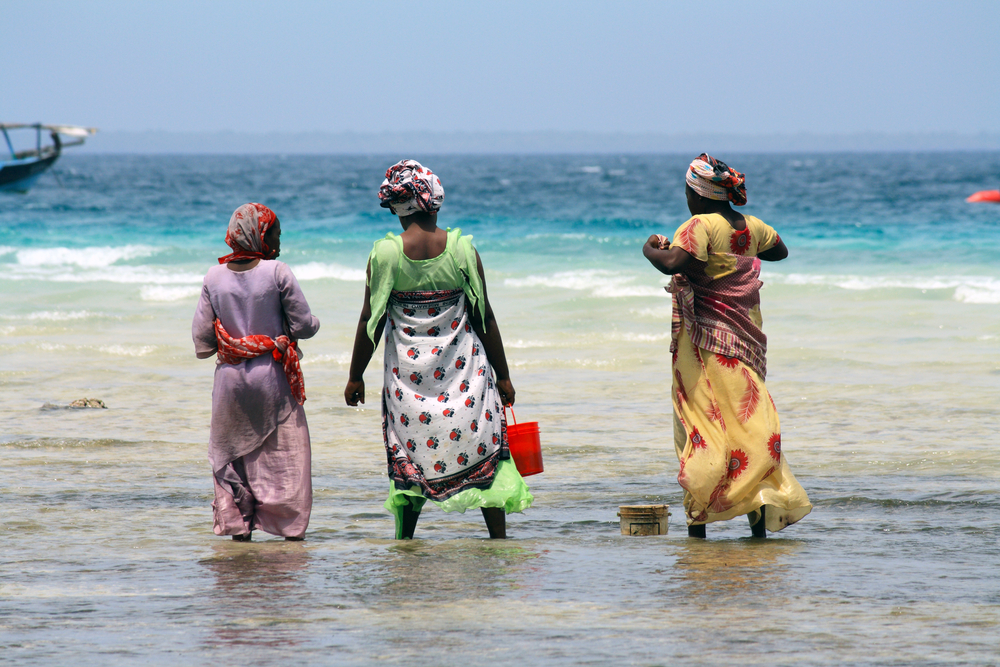Can you cut 1 Tonne of carbon pollution out of your life?
Take the challengeOaktree – an Australian not-for-profit organisation comprised of young people working to end poverty – contributed this blog. This piece is proudly supported by Bank Australia.
You pop your plastics in the recycling and run the washing machine on cold – chances are you’re pretty confident chatting climate change. But beyond your own CO2, did you know these five ways climate change affects the world?
1. Climate change plunges people into poverty
When you're reliant on the environment for your livelihood, even the slightest change can have enormous consequences – and we're not just talking about slower foot traffic at your café job when it's cloudy overhead.
Imagine you're a farmer, raising wheat and sheep. The season's dry and drought-stricken, your crop's no good, and you're faced with the choice of selling your flock to feed your family, or keeping the sheep for the next season, hoping somehow you'll survive. But if you sell, you're scraping out your economic base, and will start next year in a more vulnerable position – potentially devastating if the rains don't come.
2. Climate change traps people in a poverty cycle
Even if you survive one bad season, the poverty trap keeps you, your children, and their children stuck in a pattern: your income barely stretches to meet your basic needs, like food and medicine; which prevents you from investing in things that'd boost your livelihood – drought-adaptive wheat seeds, for example – meaning year after year, you're playing catch-up, with very little opportunity to change your circumstances.
Climate change forces people into impossible situations where they're choosing between food and medicine; school and transport – and if they're already living in poverty, traps them.

3. Climate change worsens natural disasters
You're probably familiar with this one – the king tides, unseasonal earthquakes and stretched-out bushfire season are nothing new to tuned-in ears. But consider how low-income countries are less equipped to recover from climate-related shocks, and less-resourced to prepare for shocks in the first place.
Take Vanuatu as an example – the tiny nation bore the brunt of Cyclone Pam last year, which decimated 90 per cent of the country's subsistence crops. A year on, communities are working hard on the now-drought-vulnerable farmland, and fixing roads and infrastructure – with the annual cyclone season just days away from starting.
In urban Australian terms: imagine if your laptop, car and phone were stolen every November, and you'll get a small insight into what it'd be like to be starting from scratch, every year.
4. Climate change reduces health outcomes
Unpredictable climactic factors like rainfall, soil quality, droughts and floods spread disease and boost food prices, delivering a one-two punch of vulnerability to both sickness and malnutrition for people living in poverty. Imagine unseasonal rains causing malaria-carrying mozzies to stick around; warm, stagnant ponds breeding bacteria; and flash flooding destroying topsoil, placing a huge amount of pressure on crop quality.
It's estimated that soaring food prices caused by unmitigated climate change could trap an additional 100 million people in poverty. It's all well and good to stuff your body full of leafy greens when they're a dollar a bunch, but if a crop shortage pushed the price to $10? I'd definitely be passing over a kale salad for a Vegemite sandwich.
5. Climate action reduces poverty, and vice versa
This all sounds a bit gloomy so far, doesn't it? But the good news is that action on climate change directly helps fight poverty, and steps taken to end poverty directly affect the climate fight.
An example: low literacy and education levels are often cited as reasons for communities being less adaptive to climate shocks – which can be addressed by poverty-fighting projects with education in their arsenals. Or, innovative food technology making crops more adaptive can be a boon for farmers in low-income countries seeking higher yields and more nutritious food.
And here on the internet, we don't have to choose between ending poverty and fighting climate change – because they're far more connected than we might have thought.
Images: Shutterstock
Read this next: Why climate change is worse for women, and what you can do to help
Read this next: In the age of climate change i've decided not to have kids, here's why
We're in a climate emergency and it's going to take all of us to get out of it. That's why 1 Million Women is building a global community of women committed to fighting climate change with our daily actions. To join the (free) movement just click the button below!
